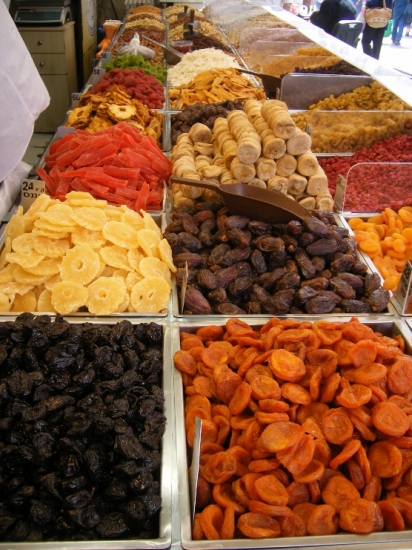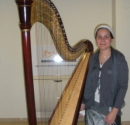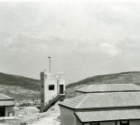
Dried fruits galore at the Jerualem Mahane Yehuda market. Photo by Lydia Aisenberg
Markets are fascinating places at the best of times but Jerusalem's Mahaneh Yehuda market on a Friday morning has an extra air of excitement thrown in for good measure.
First of all there is the cacophony of music and general sales pitch of the vendors and the buzz of conversation between shoppers. Standing shoulder to shoulder in front of stalls, young and middle aged ladies barter a better bargain than that on offer, doing a lot better than some men attempting the same.
As the vocal action unfolds, in the background there is a constant hooting from heavy traffic on Jaffa Road on one side and Agrippas on the other and every now and then a piercing whistle - totally eardrum unfriendly – cuts through the air as a vendor tries to get the attention of someone passing by.
Jaffa Road has been dug up in preparation for the much talked about and controversial Jerusalem Light Railway. With many businesses having the pavement outside their shops turned into huge holes in the ground for long periods of time it is understandable why there have been so many complaints. The main entrance to Mahaneh Yehuda looks like one gigantic building site and to the side of it another luxury apartment block is under construction, the façade of the beautifully arched doors and windows of the previous rows of buildings being preserved to be incorporated into the new. At the moment, held up by iron props is just a shell of what was yesterday, the sky visible through majestic doorways with no doors and stone window frames with no glass.
The obstacle course that Jaffa Road has become does not deter the market crowd from sidestepping holes in the ground, piles of rocks, ropes and poles as well as literally walking the plank here and there to cross to the other side and the waiting fruit and vegetable vendors, bakeries, fish shops, clothing, everything you need and do not need in household goods, shoes and genuine copies of Levi jeans going for a song. I even discovered a small shop with thousands of kippot. In bold English letters the sign above proclaimed the premises to be named THE KIPPA MAN.
For people who enjoy observing other people – a favorite pastime of mine I have to admit – then the noise is just another prop as one stands in the wings watching a street theater where nobody is an actor, they are just being themselves.
The elderly, doing their Shabbat shop accompanied by carers - the latter usually from the Philippines or Burma - and the more sprightly elderly out and about on their own, closely examine the edible goods on display. They gently squeeze and prod vegetables and fruit, take a quick taste of a green or black olives to see if it comes up to scratch and try out a few other edibles from the highly stacked foodstuffs.
An elderly gentleman unsure as to whether to buy some of the enormous strawberries stacked in pyramid fashion in the center of a stall is offered one of the tempting fruits by the vendor. The delight on his face as he nibbled the bright red strawberry, a little of the juice running down his chin, was enough for me to understand that a sale had been made.
"I really shouldn't eat strawberries but if my daughter yells at me I will tell her I bought them for my grandson," he tells me, grinning as he walks away with half a kilo of forbidden fruit in his shopping bag. Across the shopping bag is written 'Good health is pure happiness.'
Very religious Jews, those who are moderately so to those who are totally secular, local Christians and Muslims and foreign workers walk the crowded streets and alleyways – all needing to do some shopping and hoping to get the maximum produce for the minimum price.
Twenty-one year old Moshe Cohen, sporting a designer stubble and Abercrombie & Fitch sweatshirt, is stacking plastic crates and hosing them down. He is studying for a teaching diploma and hoping to work with youth in distress – a background he knows only too well having been brought up in a large impoverished Jerusalem family.
Dating back to the 19th century, Mahaneh Yehuda began on a piece of waste ground owned by a Sephardi family by the name of Valero. It was here that local Arab merchants sold produce to those Jews living outside the walls of the Old City and eventually Jewish merchants joined them. The British Mandatory Government created a permanent market site on what had been an empty plot many years before and over the years additional shops, stalls and street vendors have added to the colour, sounds and aromas that make up the popular Mahaneh Yehuda market.
Captions:
Dried fruits galore at the Jerusalem Mahaneh Yehuda market
 DEAR EDITOR 155
DEAR EDITOR 155 MODIIN ON THE MOVE
MODIIN ON THE MOVE HEALTH HINTS ONIONS FOR JAUNDICE
HEALTH HINTS ONIONS FOR JAUNDICE-1450935317.jpg) Spending a Week in Tel Aviv
Spending a Week in Tel Aviv  Ma'ale Hachamisha
Ma'ale Hachamisha-1450857993.jpg) Jazz in a Pearl Garden
Jazz in a Pearl Garden  Lydia Aisenberg
Lydia Aisenberg